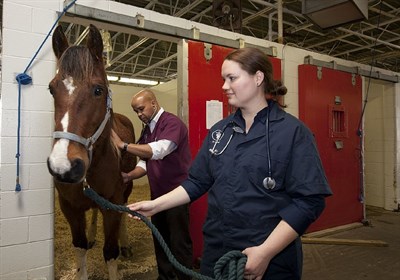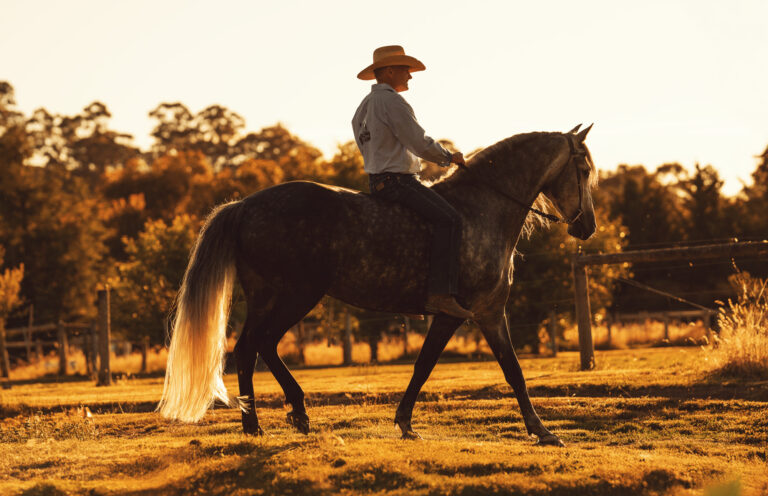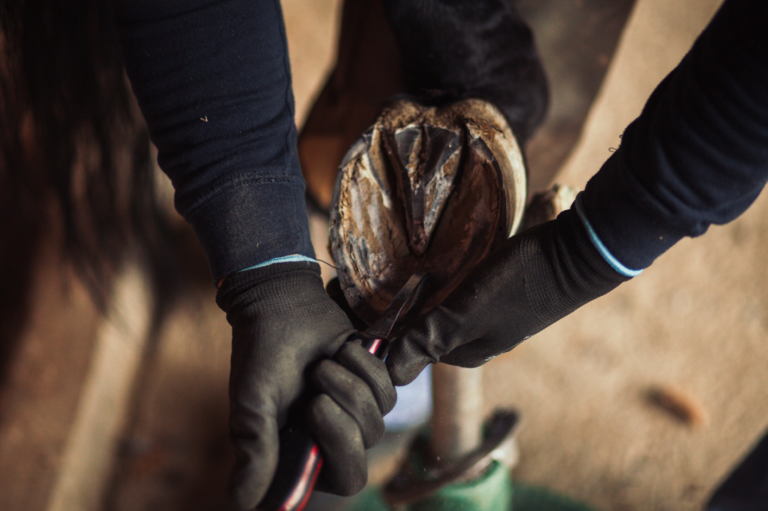This article has appeared previously with Equestrian Life. To see what’s in our latest digital issue, click here.
I’ve heard that up to 80% of performance horses have gastric ulcers. Before scoping, how can I tell if my horse has them and what is the best treatment?
— DJ, Hay, NSW
By Dr Maxine Brain
GASTRIC ULCERS ARE very common in performance horses, as most are fed diets high in grain and have reduced access to grazing. Horses are continuous grazers; they would graze pastures for most of the day if given the opportunity. The constant chewing a horse does produces large amounts of saliva which, when swallowed, helps maintain the pH in the gut so that ulcers are not formed. Performance horses are often stabled and fed only twice a day with a high-grain diet that causes a marked rise in stomach acidity. The horse then stands around for extended periods without either food in the stomach or any neutralisation of the gastric acids to reduce acid. Constant high levels of acid overwhelm the protective barriers of the stomach mucosa, causing ulcers of varying size and thickness.
Other factors that contribute to ulcers are NSAIDs (non-steroidal anti-inflammatory drugs, phenylbutazone the most commonly used), lack of roughage in the diet, confinement, intense training and concurrent illness. Basically, any stress on the horse has the potential to cause ulcers.
The preferred method of diagnosing stomach ulcers is with a gastroscope that allows direct visualisation of the stomach lining. However, it is not the only way. Often the predominant clinical symptom with ulcers is poor appetite. We can use a test course of anti-ulcer medication to see whether this improves the horse’s appetite. Improved appetite after three to four days of medication is usually indicative that the horse has ulcers and a full course should be given (about three weeks of treatment). However, if the horse does not eat after several days of anti-ulcer medication, this does not mean it doesn’t have ulcers. Sometimes the ulcers are quite severe or do not respond to the medication and a different type is required.
There are several other methods or observations that may suggest ulcers: feeding habits, blood and faecal tests.
Often horses will ulcers will readily eat hay but will not eat their hard feeds, particularly if they are high in grain. This is thought to be due to the increase in saliva produced whilst chewing hay, which helps reduce stomach acidity compared to the increased acidity in the stomach with grain feeding.
Blood tests are not a definitive test for ulcers but findings such as anaemia can be suggestive of ulcers. There are also tests available that test for the presence of blood in faeces; these tests may only be suggestive of ulcers and are not reliable for accurately diagnosing the presence or absence of ulcers.
READ THE LATEST NEWS ARTICLES HERE








